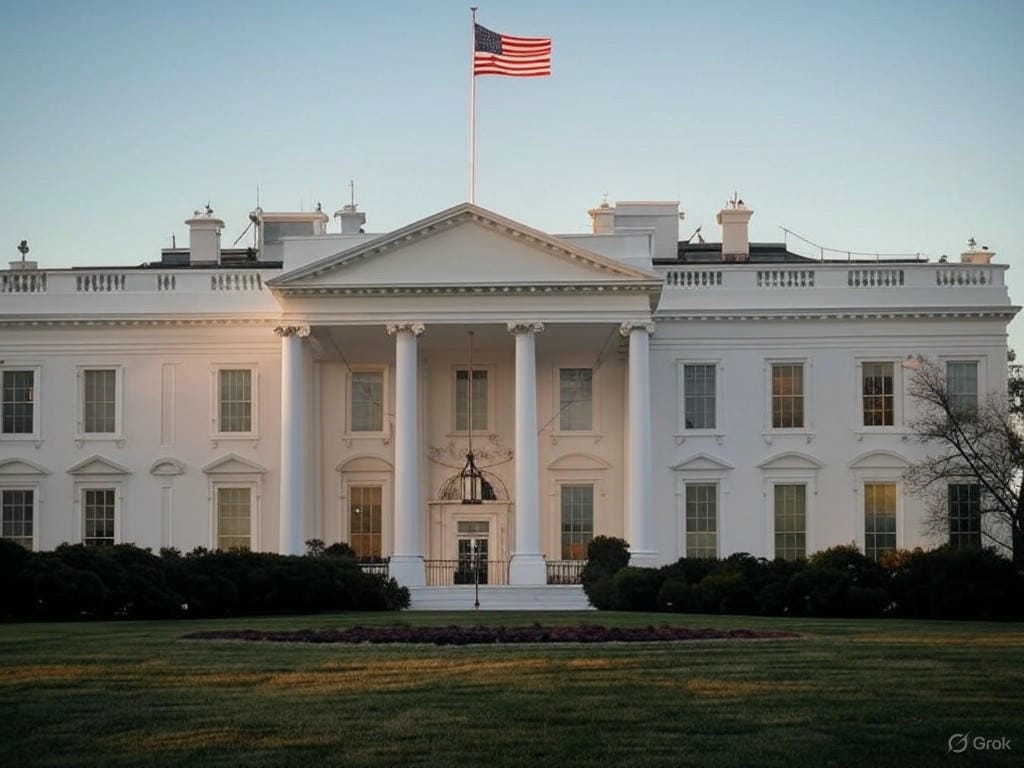Two U.S. Presidents Urge Apple CEO to Shift iPhone Production to America
In a rare display of bipartisan agreement, two U.S. presidents, despite their differing political ideologies, have both pressed Apple’s CEO to relocate iPhone manufacturing to American soil. This push for domestic production highlights a broader concern about economic nationalism, job creation, and the role of influential tech giants in shaping the U.S. economy. While President Donald Trump has been vocal about this issue during his tenure, he was not the first to advocate for such a move. This article delves into the historical context of presidential influence on corporate decisions, the significance of manufacturing in the U.S., and the broader implications for Apple and the tech industry.
Presidential Calls for Domestic Manufacturing
The appeal to bring iPhone production back to the United States is rooted in a desire to boost local economies and reduce dependency on foreign manufacturing, particularly in countries like China. Donald Trump, during his presidency, repeatedly emphasized the importance of ‘Made in America’ products. He publicly urged Apple to consider relocating its manufacturing operations to create jobs for American workers and strengthen national security by reducing reliance on overseas supply chains. However, Trump was not alone in this endeavor. Another U.S. president, prior to Trump’s administration, also raised similar concerns, reflecting a shared vision for economic self-reliance despite stark political differences.
This bipartisan push underscores a critical issue in American politics: the balance between globalization and domestic economic interests. Over the years, multiple administrations have grappled with the challenge of encouraging corporations to prioritize American labor while navigating the complexities of international trade agreements and cost efficiencies. Apple’s role as a global tech leader makes it a prime target for such discussions, given its massive supply chain and influence on consumer markets worldwide.
A Historical Perspective on Presidential Influence
The office of the U.S. President, established in 1789, has seen 45 individuals serve across 47 presidencies, with notable figures like Grover Cleveland and Donald Trump serving non-consecutive terms. The presidency is arguably the most powerful government position in the world, with the elected official serving a four-year term through an electoral college system. Since the adoption of the Twenty-second Amendment in 1951, no president can serve more than two full terms, a rule instituted after Franklin D. Roosevelt’s unprecedented four-term tenure.
Throughout history, U.S. presidents have leveraged their influence to shape economic policies and corporate behavior. From James K. Polk, who led the nation to victory in the Mexican-American War, to Bill Clinton, under whose administration federal spending decreased and job creation soared, presidents have often used their platform to address industrial and economic challenges. The call for Apple to manufacture iPhones domestically aligns with this tradition of presidential advocacy for national economic interests, echoing past efforts to prioritize American industries over foreign alternatives.
Why iPhone Production in America Matters
Relocating iPhone production to the U.S. could have far-reaching implications. Economically, it would create thousands of jobs in manufacturing, logistics, and related sectors, providing a significant boost to local communities. It could also enhance national security by reducing reliance on foreign supply chains, which are vulnerable to geopolitical tensions and disruptions. However, challenges remain, including higher labor costs in the U.S. compared to countries like China, where Apple currently assembles most of its products. Balancing cost efficiency with patriotic economic policies is a complex issue that Apple must navigate in response to presidential urging.
Moreover, Apple’s decision could set a precedent for other tech giants. If a company of Apple’s stature were to shift significant operations to the U.S., it might encourage others to follow suit, potentially reshaping global manufacturing trends. This move could also enhance Apple’s brand image among American consumers, who increasingly value products made locally as a symbol of national pride and economic support.
The Broader Implications for Apple and the Tech Industry
For Apple, the decision to relocate manufacturing is not just about economics; it’s also about public perception and corporate responsibility. As one of the world’s most valuable companies, Apple is often under scrutiny for its business practices, including labor conditions and environmental impact. Moving production to the U.S. could address some of these concerns while aligning with presidential calls for economic nationalism. However, it would require substantial investment in infrastructure, training, and technology to make domestic production viable on a large scale.
For the broader tech industry, this situation highlights the growing intersection of politics and business. As technology becomes increasingly integral to national economies and security, companies like Apple may face more pressure from government leaders to align their operations with national interests. This dynamic could redefine how tech giants operate, pushing them to prioritize local economies over global cost efficiencies.
Conclusion
The bipartisan appeal from two U.S. presidents to Apple’s CEO to bring iPhone production to America reflects a deeper concern for economic sovereignty and job creation. While the challenges of such a transition are significant, the potential benefits—ranging from job growth to enhanced national security—are undeniable. As the tech industry continues to evolve, the influence of presidential advocacy on corporate decisions will likely remain a critical factor. For now, Apple’s response to this call remains to be seen, but the discussion underscores the enduring power of the U.S. presidency in shaping economic landscapes. Stay tuned for updates on this developing story and its implications for the future of American manufacturing.

Leave a Reply